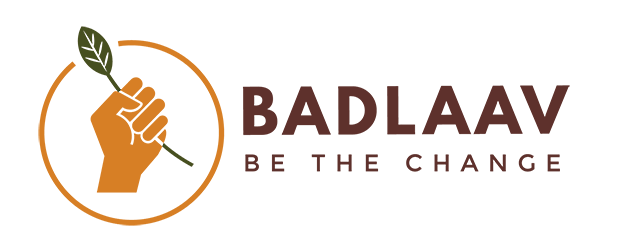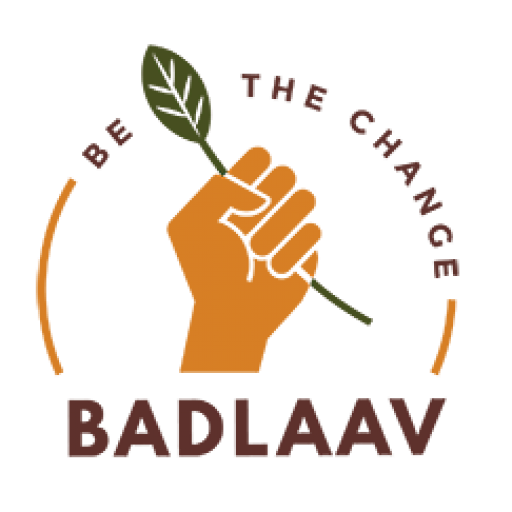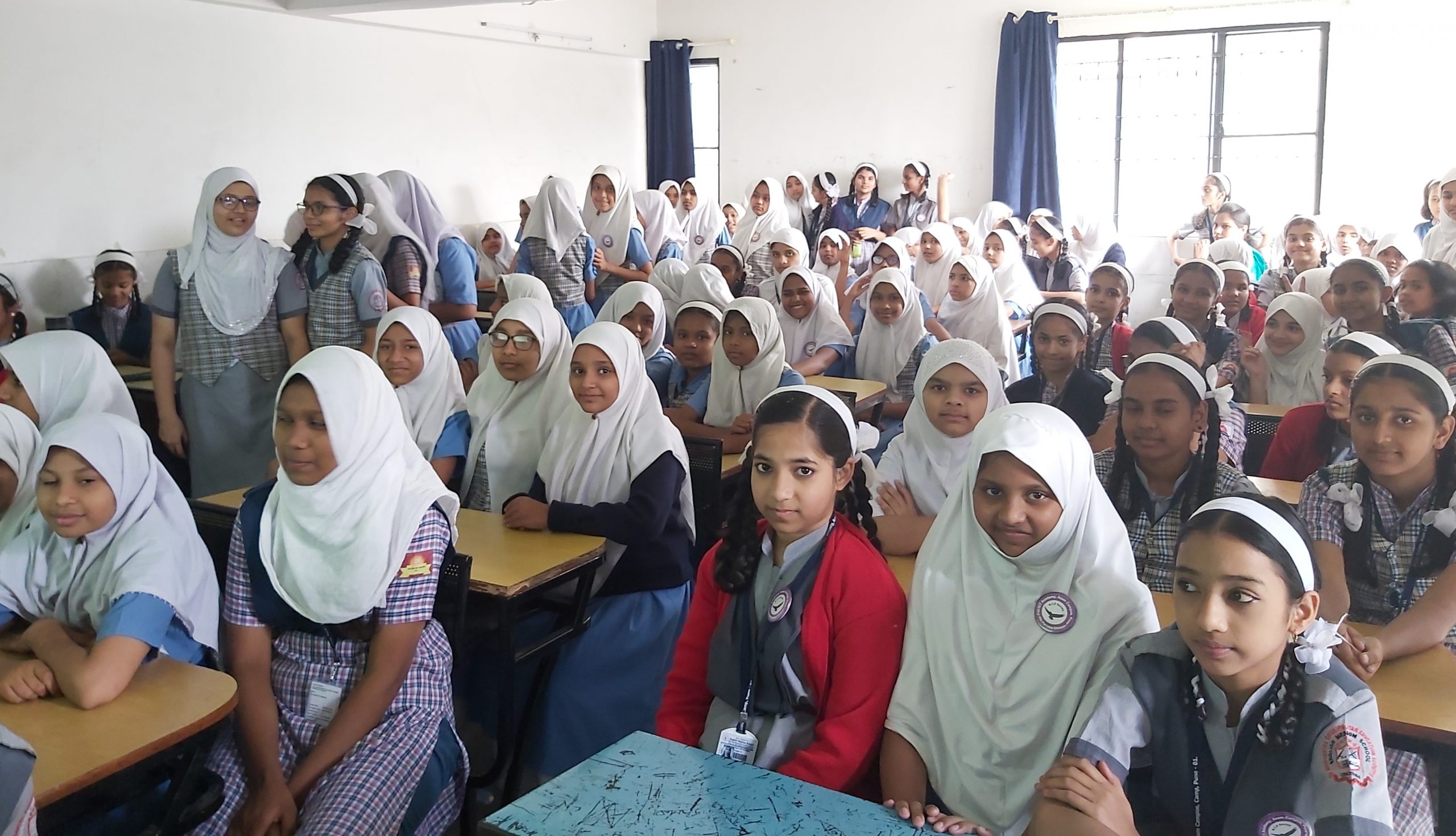As an Organization that believes in the power of the youth, Badlaav aims to begin at the roots. One of our main endeavors is to encourage building conversation among young minds around ideas that propagate positive change, that unfortunately are not given much importance by school curriculums in India. In the pursuit of leading the youth to believe in themselves as the changemakers of society, Therefore, our team took on the challenge of conducting sessions with students from the schools and colleges of Azam Campus, Pune.
Engaging with school students
We started our interaction with Grade 4 school children, from MCE Society’s English Medium School. The most important aspect to engaging with younger students, is to be able to grasp their attention from the very beginning, and tailor the sessions according to the interests of the children. However, we made sure to keep the information simple to comprehend, and such that it encourages the children to question their ‘whys’ and ‘hows’.
As a session manager and trainer with Badlaav, Munira Phaltanwala, a second-year commerce student from Pune, has been engaging with students from, by taking up sessions to introduce topics in relation to waste management. Munira shares her experience: “Whilst preparing myself to take up the sessions with the children, I dove deeper into the topics, so as to ensure that the children find topics like sustainability engaging, and have answers to all their questions.”
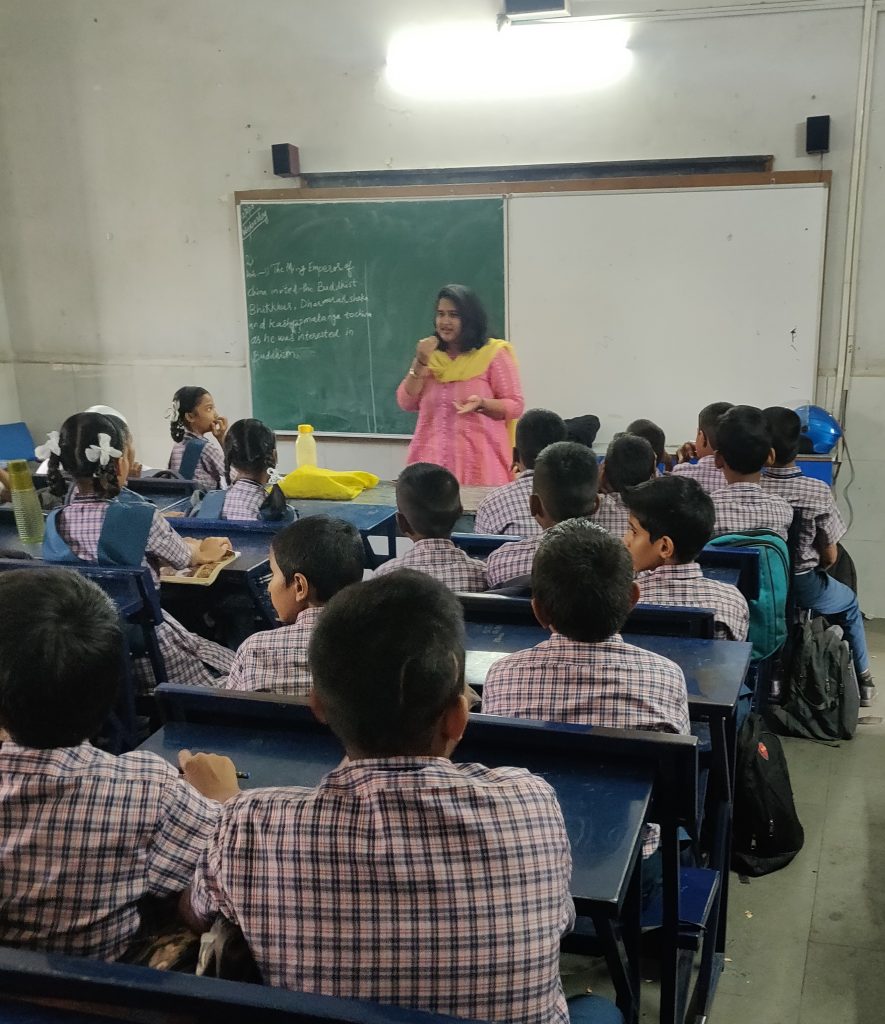
Munira taking a session with IV and V graders 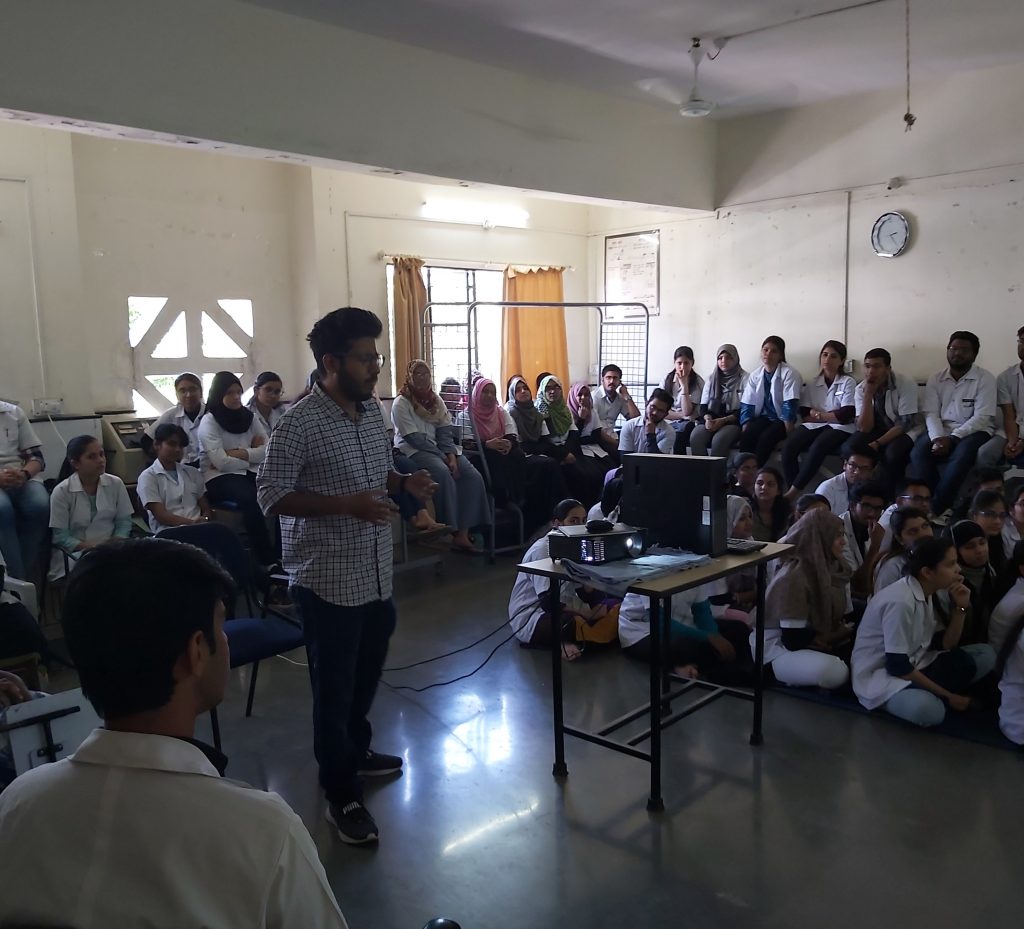
Arvind while he presents to a group of school students
We began the sessions by introducing terms like ‘environment’, ‘deforestation’, and ‘waste management’, and encouraged the children to share what they knew about these topics. During the discussions we realised that while the children were aware of the concepts behind these ‘terms’ as a result of the observations of their surroundings, they were not aware of those specific terms that define those problems.
We progressed into the session by discussing the process of ‘waste management’ through a video, and discussing it in detail every step of the way. Radhika shares her observation upon introducing the topic: “I realised that the children were most interested in the process of recycling, and as to what happens to the waste when it is sent to the waste management outlet.” This especially served a key observation for us as a team. We introduced topics that hold much relevance in our lives today but unfortunately don’t serve much purpose in school textbooks. However, the children were so keen to learn more, and we in return, got the opportunity to answer their questions and satisfy their curiosity.
To keep their interests up and questions coming, we decided to give the students a task. The task was of collecting the plastic waste generated in their homes on a daily basis, and bringing it to us for the next session. With this task we hoped for the students to take this discussion home and introduce the concept of recycling in their households. The students were enthusiastic about the task and had questions about the process after collection of waste, which is when we introduced to them the process of segregation of (biodegradable and non-biodegradable) waste.
The discussion steered toward the role of the waste pickers, and an interesting question from the students came to light: “We pay the housekeeping staff and waste-pickers for a job that entitles the segregation of waste, so why should we bother to separate our waste into different categories?” This is when we introduced the idea of ‘My Waste is My Responsibility’. We talked about how the waste we as individuals produce is not the responsibility of the waste picking and housekeeping staff. Instead we must do our part by segregating waste in our own households, where it is most necessary, thereby reducing the load on the waste-pickers.
This eventually helped the students to understand how big of a process segregation is when done on a bigger scale (city level) and the role of the waste pickers in keeping the waste-management system together. To sustain the conversation we had with the students, we installed dustbins for segregated waste all around campus and encouraged their usage.
By igniting curiosity among young school students, we made a small step toward creating an environment open enough to nudge the conversation of topics that are otherwise, not given much importance by the school curricula.
Our experience of interacting with the children at Azam Campus was truly a driving force for us, here at Badlaav. To expand our impact, we joined hands with Global Shapers Community, Pune Hub to run a new campaign under Project Zero Waste. Global Shapers Community is an international network of young people across 153 countries, who are enthusiastic to drive change in the world. The GSC Pune Hub is one of the active Hubs of Global Shapers Community who have various projects through which they are doing amazing work in the fields of sustainability and education.
With our “Plastic Take Back Campaign”, Badlaav and GSC Pune in conjunction with Maharashtra Cosmopolitan Education Society(MCES), Azam Campus. We highly appreciate the efforts of Dr. P. A. Inamdar of Azam Campus in his support for our campaign. Through Project Zero Waste and our Plastic Collection Drives, we were successfully able to divert large amounts of recyclable waste from the landfills of Pune.
With the help of the students and the staff at Azam Campus, we have been able to divert a over 500 kgs of recyclable waste from ending up in landfills. On top of that, we have set up a Compost plant that converts the organic wastes from the school as well as the students’ homes into plant compost. As of now, we have composted over 700 kgs of organic waste material that would have otherwise also ended up in landfills.
Even though the COVID-19 Pandemic has limited our abilities in this particular campaign, the work we started at Azam Campus in March, 2019, is still going on in full swing and the collection of plastic and recyclable wastes as well as the compost plant has been working the entire time. We are happy and proud of all the students and staff from Azam Campus that helped us in this initiative and kept it going even during the tough times.
